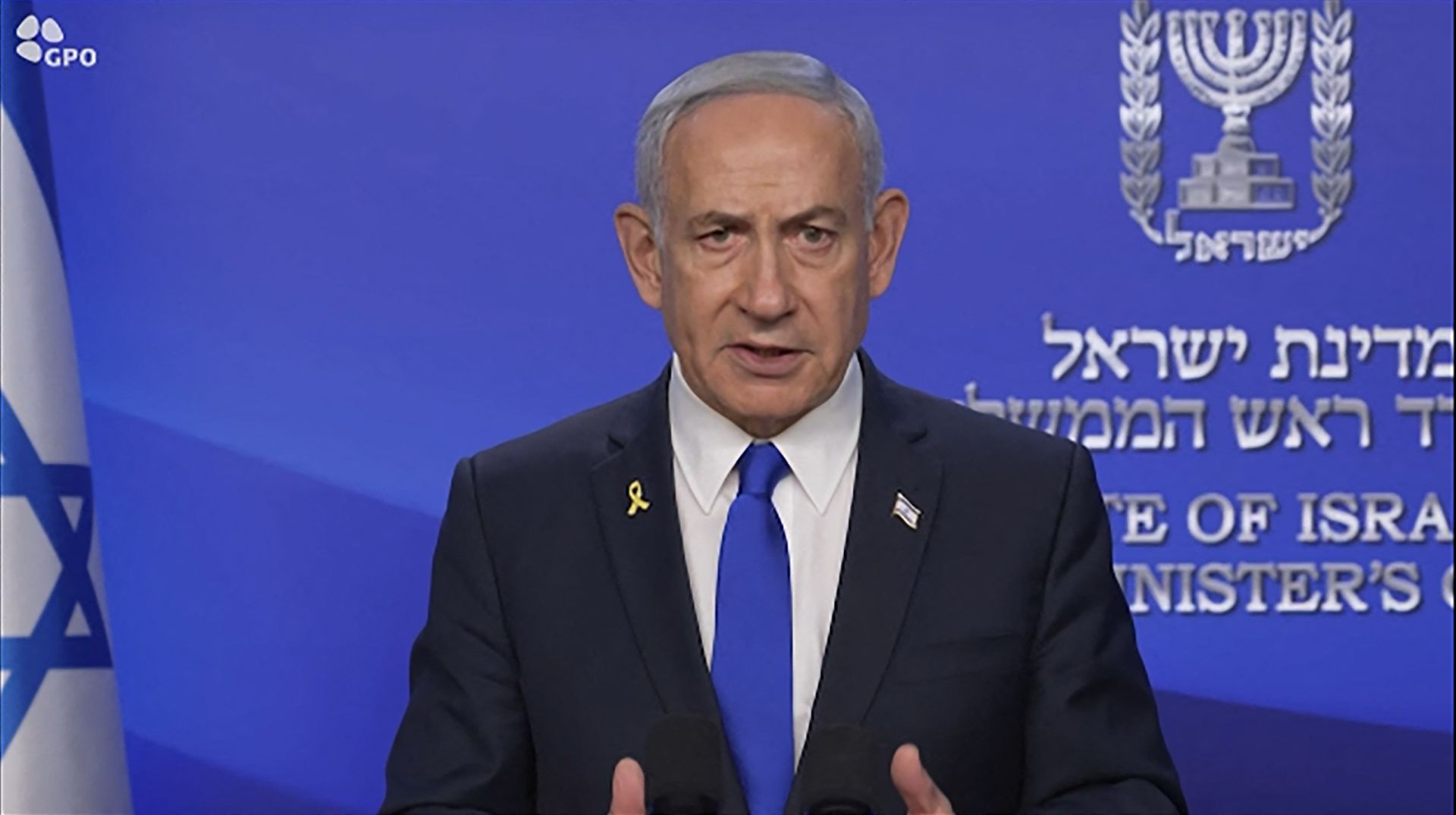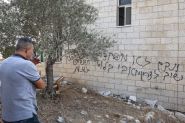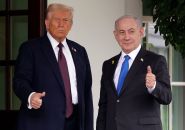- Home
- Middle East
- Israel says Agreed to Trump Plan for Ceasefire with Iran

©AFP
Israel said Tuesday it has agreed to US President Donald Trump's declaration of a ceasefire with Iran, adding that it has achieved all its objectives in the 12-day war with its arch-foe.
Hours after Trump said his ceasefire had taken effect, Israel said it intercepted two Iranian missiles, with Defence Minister Israel Katz vowing that the military would "respond forcefully".
Iran denied launching missiles at Israel after the ceasefire announcement, and said it had "compelled" Israel to "unilaterally halt its aggression", while stopping short of officially accepting the ceasefire plan.
Foreign Minister Abbas Araghchi had earlier said that if Israel stopped "its illegal aggression," Tehran would have "no intention" to continue fighting.
The US leader had said the truce would be a phased 24-hour process beginning at around 0400 GMT Tuesday, with Iran unilaterally halting all operations first. He said Israel would follow suit 12 hours later.
"THE CEASEFIRE IS NOW IN EFFECT. PLEASE DO NOT VIOLATE IT!" Trump wrote on his Truth Social platform.
The Israeli government said: "Last night, Prime Minister Benjamin Netanyahu convened the cabinet... to announce that Israel had achieved all the objectives of Operation 'Rising Lion' and much more."
It added that it had removed "an immediate dual existential threat: nuclear and ballistic".
"Israel will respond forcefully to any violation of the ceasefire," the statement said, while the army added that the "danger persists" despite the truce announcement.
Iran's top security body said the Islamic republic's forces had "compelled" Israel to "unilaterally" cease fire, adding that they remained "on high alert" to respond to "any act of aggression".
Referring to a "divine gift", the Supreme National Security Council said Iran's actions against Israel led to "victory and triumph that compelled the enemy to regret, accept defeat, and unilaterally halt its aggression".
'Respond forcefully'
After Trump said the truce had taken hold, Israel's Katz said he had ordered the Israeli army "to respond forcefully to Iran's violation of the ceasefire" after incoming Iranian missiles were reported by the military.
A military official told AFP on condition of anonymity that "two missiles were launched from Iran and they were intercepted".
Iran however denied launching missiles at Israel after the announcement.
Earlier, Israeli rescuers said four people were killed in an Iranian strike, with state media in the Islamic republic reporting waves of missiles were headed toward Israel.
In Iran, state television said an overnight Israeli strike in northern Iran killed nuclear scientist Mohammad Reza Seddighi Saber, who was under US sanctions.
Strikes on US base
Any cessation in hostilities would come as a huge relief to world leaders frantic about an escalation in violence igniting an even wider war.
Israel launched "preemptive" strikes against Iran on June 13, hitting nuclear and military sites as well as residential areas, and prompting waves of Iranian missile attacks on Israel.
While Iran and Israel have been in a shadow war against each other for decades, this has been by far the most destructive confrontation between the arch-foes.
The war has also seen US strikes on Iranian nuclear facilities, followed by an Iranian missile launch towards the largest US military facility in the Middle East -- Al Udeid Air Base in Qatar.
Calling for de-escalation, Trump said Tehran had given advance notice of the barrage.
Iran's National Security Council confirmed having targeted the base "in response to the US aggressive and insolent action against Iran's nuclear sites and facilities".
It added that the number of missiles launched "was the same as the number of bombs that the US had used" against Iran.
Ali Vaez, a senior advisor at the International Crisis Group, told AFP: "This was calibrated and telegraphed in a way that would not result in any American casualties, so that there is an off ramp for both sides."
According to a US defence official, the attack was conducted using "short-range and medium-range ballistic missiles".
Qatar summoned the Iranian ambassador on Tuesday after Iran's assault, with the foreign ministry expressing its "strong condemnation" and repeating that the country "retains the right to respond to this egregious violation".
The assault came after the United States joined its ally Israel in the war with Iran, attacking an underground uranium enrichment centre with massive bunker-busting bombs and hitting two other nuclear facilities.
Hopes for truce
AFP reporters heard blasts in central Doha and in Lusail, north of the capital, on Monday evening, and saw projectiles moving across the night sky.
Some Israelis on Tuesday welcomed the prospect of a truce after 12 days of intense fighting.
"I really hope so," said Tel Aviv resident Tammy Shel of the prospect of a lasting ceasefire.
"Really. I am so tired. Everyone is tired. We just want to have some peace of mind... For us, for the Iranian people, for the Palestinians, for everyone in the region. For all human beings."
Iranians meanwhile gathered in central Tehran to celebrate, images on state TV showed, with some waving the flag of the Islamic republic and chanting "Death to America".
Israeli strikes on Iran have killed more than 400 people, Iran's health ministry has said.
Iran's attacks on Israel have killed 28 people, according to official figures and rescuers.
Saudi Arabia and the European Union welcomed Trump's announcement of a ceasefire, while China urged Iran and Israel to seek a "political resolution" to their conflict.
By Alice Chancellor with Ramin Khanizadeh in Tehran and Frankie Taggart/AFP
Read more



Comments